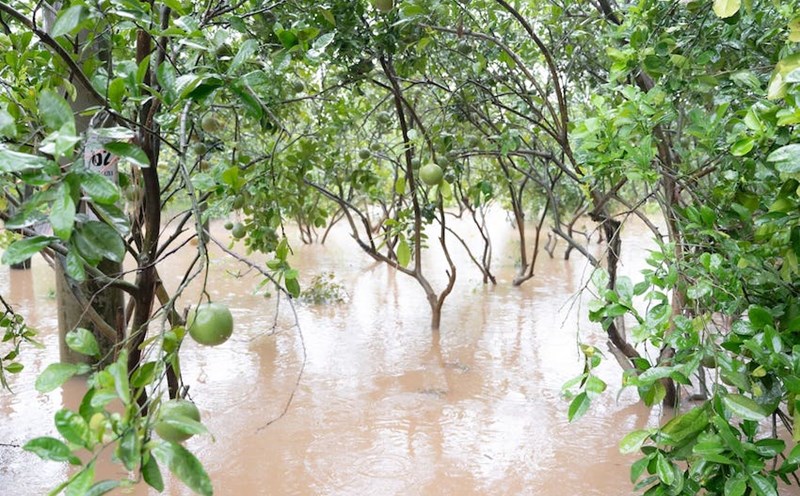Doctor Khong Minh Tuan - Deputy Director of the Hanoi Center for Disease Control (CDC) - said: During the storm season, especially when there is prolonged flooding, environmental sanitation conditions, clean water and food are seriously affected. Along with that, when infrastructure is destroyed, domestic water sources are polluted, many households have to evacuate to temporary, cramped and unsanitary accommodation, the risk of disease outbreaks is even higher.
"This is the time when infectious diseases such as acute diarrhea, dengue fever, pain in the eyes, skin diseases... Therefore, people need to raise awareness of disease prevention, eat cooked food and drink boiled water, keep personal hygiene, disinfect water sources and proactively go to medical facilities when there are unusual signs for timely examination and treatment", Dr. Khong Minh Tuan added.
According to BSCKII Pham Manh Than, An Viet General Hospital also pointed out diseases that can occur after the flood season: rainwater, flood mixed with soil, dust, garbage, waste and microorganisms that can easily cause disease spread. Some common diseases commonly seen during the rainy and stormy season include: foot rot, dengue fever, impetigo, acute diarrhea, pain in the eyes...
leg drinking water ( foot-and-mouth fungus) often appears when the feet are in contact with dirty, moist water for a long time. The patient had symptoms of itching, peeling, cracking, and even bleeding. If not treated promptly, the disease can spread to many other skin areas.
Dengue fever broke out strongly in the conditions of stagnant, humid prison water - a favorable environment for mosquito development. The disease causes high fever, body aches and pains, bleeding tooth and tooth, blood clotting disorder and can lead to dangerous complications, even death.
Voltage is a common skin disease after storms, manifested by blisters and pus on the skin, when broken, it forms a shallow ulcer, causing yellow-brown scales.
Diarrhea arises from eating contaminated food and water. Patients can have fever, vomiting, diarrhea continuously, rapid dehydration and are susceptible to serious complications if not treated promptly.
Red eye pain also increased after storms due to the humid environment and polluted water sources. The disease is easily spread in the community, with the risk of outbreak.
Doctor Khong Minh Tuan emphasized that the health sector needs to strengthen epidemic monitoring in the community, especially low-lying areas that are often flooded, to detect and promptly handle the first case. At the same time, instruct people on environmental sanitation, prepare enough medicine, chemicals, medical equipment and train medical staff on skills to recognize and treat epidemics after storms.
To prevent this, the Department of Preventive Medicine (Ministry of Health) recommends: people need to eat cooked, drink boiled water, choose hygienic foods; wash their hands with soap before eating and after going to the toilet; personal hygiene daily; wash feet, dry them after contact with dirty water; kill mosquitoes, mosquito larvae; make bed sheets while sleeping; disinfect water sources; properly treat waste and animal carcasses. When there are unusual signs, it is necessary to go to the nearest medical facility for timely examination and treatment.











